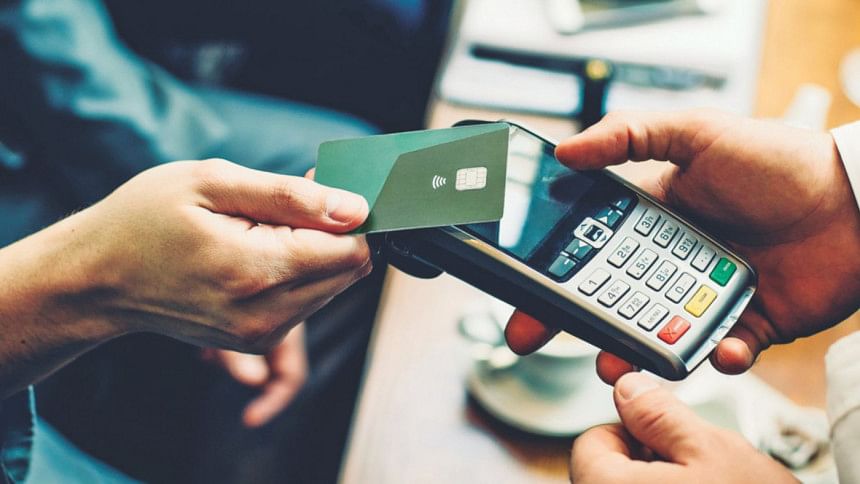Silent role of MFS to keep the economy going

With the advancement of the pandemic, the citizens of Bangladesh are leaning more and more towards adopting Mobile Financial Service (MFS) as their method of money transfer, buying products and services, buying mobile balance and making bill payments. To enable the customers during this crisis, the previous monthly limit of Tk 75,000 of money transfer through MFS providers has been increased to Tk 2,00,000 by the Central Bank.
Owing to Covid-19 control measures relating to restrictions on movement and closure of market places, a significant portion of the agent-base is partially operational. In order to ensure liquidity of e-money as well as cash at agent points, cash settlement at banks within limited banking hours are the major challenges faced by MFS providers in the current crisis. Yet, the MFS providers regulated by Bangladesh Bank like bKash is having approximately 5.8 million transactions every day. According to bKash officials, currently their customers are mostly availing services such as bill payments, money transfers and merchant payments for groceries and medicines. Besides cash-ins at agent points, bKash customers can directly conduct instant money transfer from their bank account, Visa and MasterCard to their bKash account at any time. Members of the Bangladeshi diaspora working abroad are also sending inward remittance through scheduled banks directly into the bKash account of their intended beneficiaries. As a result, bKash is being able to meet the transactional needs of the people during the ongoing crisis.
Ever since March 26, the beginning of the government-declared general holiday, transactions in the MFS industry have depleted as the field operations related to e-money vis-à-vis cash liquidity at the agent points have been severely hindered by the imposition of social distancing for the wellbeing of people across the country. However, almost 150,000 customers have paid their electricity bill through bKash alone on each day since. At a time when going outside poses health risks, mobile banking is enabling customers to avail services—like bill payments of gas, electricity and water, as well as mobile recharges, sending money, adding money, bill payment of credit cards and lots of other services—directly from their home or their nearest agent points. This, of course, has added to the overhead costs of business for the MFS providers.
Following the instructions of Bangladesh Bank, MFS providers are currently not charging any fees for small scale payments of groceries and medicines. At the same time, cash-out charges upto Tk 1,000 has been kept free. It is understandable that such free of charge service provisions come at a massive revenue cut, as the scale of transactions are very high in the MFS sector. As assessed, till April 2 this year, in bKash alone, 1,922,498 unique customers got cash out, with a contribution of Tk 31,608,003 from bKash's side. Concurrently, within the same time period, 879,656 bKash customers got the advantage of free P2P services, totalling a contribution of Tk 7,388,575 by bKash. The figures for the other MFS providers will be proportionate to their respective market share. The economic assessment by any standard is suggestive that the cumulative negative impact on the revenue earnings of MFS providers may put the mobile banking industry into jeopardy. In a situation like this, ensuring that the MFS industry can run smoothly and earn revenue through its limited operations should be given the utmost priority by the authorities. Hence, it is imperative that the Central Bank consider allocation of compensation to MFS providers in order to ensure delivery of service, as directed through the recently issued circular.
The global and regional Covid-19 situation suggests that it would take several months to be out of the danger caused by the virus. Under such circumstances, we expect to see more and more reliance on MFS for daily economic activities. An increased proportion of disbursement of salaries to garments workers is likely to take place, in line with the government decision. All the allowances of the "social safety net" would also be best disbursed through MFS providers, who already have the experience of seamless disbursement of stipends to students. Therefore, a sustainable arrangement for the MFS providers to support the government initiative for enhanced mobile banking is most realistic under the prevailing circumstances.
The silent role of the MFS industry in keeping the economy of Bangladesh going at a critical juncture is a testimony of the farsighted vision of the government in its implementation of "Digital Bangladesh". The implementation of such ideas shall definitely reap the benefits, sooner or later. Implementation of MFS by Bangladesh Bank under the guidance of the current government was a small step for mobile banking, but a giant step for ordinary Bangladeshis.
Traditionally, the banks would make donations to the government fund in a situation like this and walk away with due applause. But, we also need to recognise the huge contribution the MFS providers are silently making on a daily basis, all the while accepting a huge cut to their revenues. It would be proper to treat the MFS providers as "unsung heroes". A prompt action by the central bank to facilitate unhindered operations of MFS is a call that needs to be heard, loud and clear.
Shamsuddin Haider Dalim is Head of Corporate Communications and PR at bKash Limited.

 For all latest news, follow The Daily Star's Google News channel.
For all latest news, follow The Daily Star's Google News channel. 



Comments